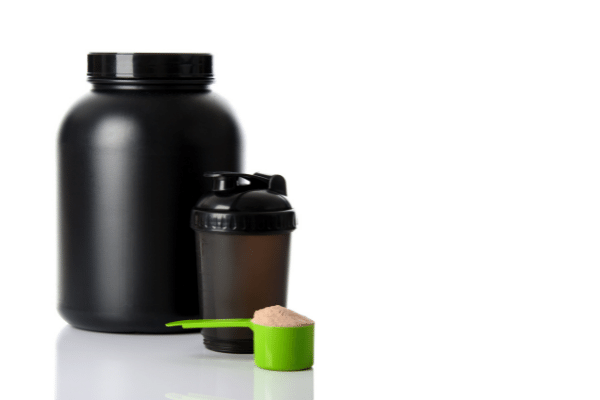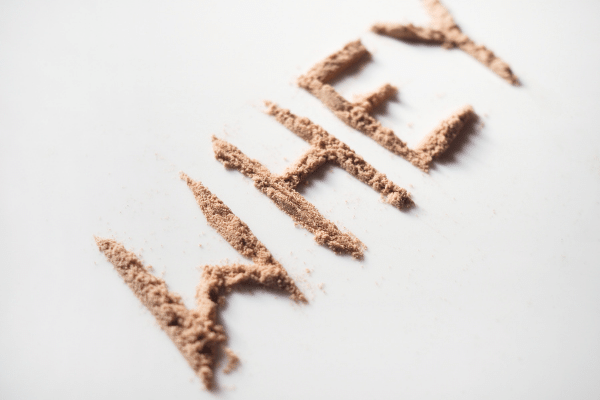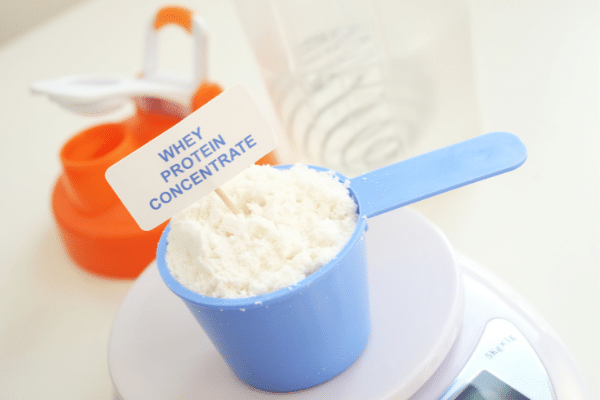If you are a gym-goer, you are undoubtedly aware of the necessity of consuming a diet rich in protein. Protein powder is the best way to meet your protein needs, whether vegan, vegetarian, or non-vegetarian.
Whey protein is one of the most renowned protein supplements on the market today. We know there is a plethora of whey protein available in the market, which is why choosing the best whey protein can be very tedious. So, today we will give you tips on choosing the best whey protein.
Types of Protein and Their Uses

Before you learn how to choose the best whey protein, let us give you a brief overview of the types of whey protein and their uses.
Whey Protein:
Whey protein includes all of the necessary amino acids and is effortlessly digestible, making it a pretty popular choice for gym enthusiasts. Not only does it boost energy, but it also has the potential to lower stress levels. If you follow a legit diet regimen, whey protein would have been a part of your dietary need.
Whey has turned out to be very useful after a good gym session.
Soy Protein:
Soy protein is another popular option for protein consumption. It lowers cholesterol and may ease menopausal symptoms in particular women. It can also assist in the treatment of osteoporosis by advancing bone density.
Apart from both of these options, there is some other source of protein as well. Here’s a list of them:
- Milk proteins: aid in boosting immunological operation and muscular building.
- Egg protein: The best part of egg protein is that you can consume it throughout the day as it is released more slowly than whey protein.
- Hemp protein: This source of protein is also wholly plant-based. It is rich in omega-3 fatty acids.
- Brown rice protein: This protein is gluten-free as it is entirely plant-based, making it an excellent alternative for vegetarians or people with lactose intolerance.
- Pea protein: This is one of the most accessible protein sources to digest, is hypoallergenic, and is reasonably affordable.
Also Read: Soy Protein Vs. Whey Protein Isolate
Types of whey protein

Because whey protein is the focus of this article, let’s better understand the many types of whey protein.
Whey protein is available in several forms. The significant difference between them is the way they have been handled.
1. Concentrate: This type of whey protein has the most pleasing taste and comprises around 70–80 percent protein, some lactose, and fat.
2. Isolate: As compared to concentrated whey protein, isolates lack many of the essential elements when it includes 90 percent or more protein, less lactose, and fat.
3. Hydroslate: This pre-digested type of protein, also known as hydrolyzed whey, allows faster absorption. It causes an insulin rush that is 28–43 percent higher than isolation.
Things to consider when purchasing whey protein

Whenever you decide to purchase whey protein, here are a few aspects that you should consider and look for:
Source of protein.
Most whey protein companies highlight that their whey protein comes from either whey protein concentrate or whey protein isolate. Out of them, only a few specify protein sources and protein hydrolysate, and you must know how to tell them apart.
The chief difference is that Whey protein isolate has a higher protein density than whey protein concentrate. It is the purest type of protein, with a more excellent content of BCAAs. Despite the fact that whey protein is the most refined protein alternative, whey protein concentrate offers the best value for money and is perfect for those who are not lactose intolerant.
Also, this protein may be beneficial to beginners since it enhances their health and includes 80 percent protein by mass.
Amount of protein in a single scoop
Sugar, inexpensive fillers, and other additives should be avoided in protein powder. In a scoop, you should obtain 80 percent of your protein. If your scoop is 40g, each serving should include 22g of protein; don’t buy it until the remaining 18g is made up of the good stuff. So, make sure to entirely read the label to determine whether it has authentic ingredients.
Proportion of sugar
If you are following a diet, the last thing you would want is added sugar. Before purchasing a whey protein powder, always check the pack’s label and look for words like corn syrup solids, cane sugar, and maltodextrin. If you see any of these items contained in the pack, say no to that product and remember never to buy a whey protein that contains added sugar in it.
Presence of digestive enzymes.
Digestive enzymes are fundamental for breaking down the food items you eat. These proteins hasten chemical processes that convert nutrients into compounds your digestive tract can consume.
Without digestive enzymes, protein powder can cause indigestion and bloat. Look for a protein powder that is enriched with digestive enzymes such as amylase, lactase, protease, and lipase, which enhances protein absorption.
Look for the name of the company.
Nutrition is one of the most lucrative industries that thrive on our shortcomings. Due to this reason, there are many times when the nutrition firm prices their product any way they want and uses whatever ingredients they choose.
However, as consumers, we have the freedom to choose the best product for us. So, when purchasing whey protein, look for a brand that is best for you.
Price of the product
Because many individuals find it challenging to comprehend the nutritional content of whey protein, one of the most frequent ways to choose the finest whey protein is to look at its pricing. This quality is also understandable to a novice. a
In general, the Whey protein price indicates the benefits it may deliver. For example, if you choose a cheaper product, you may end up with more sugar or be forced to compromise in some other manner.
Your Health and Fitness Objectives
Last but not least is to determine your health and fitness objective so that you can buy the best whey protein for yourself. Understanding your health and fitness goals is crucial because they suggest which type of protein and how much protein you require.
For example, your fitness objective may be to lose a fixed amount of pounds in a certain number of months or to maintain weight while increasing muscle growth and toning. A goal must always be quantifiable, both numerically and subjectively.
What are the benefits of whey protein?

Now that you know how to choose the best whey protein, we will give you a list of all the possible benefits of whey protein.
- Muscle development is aided by whey protein.
- Whey protein may aid in the treatment of type 2 diabetes.
- It is a fantastic source of high-quality protein.
- Whey protein has been indicated to aid in inflammation reduction.
- Irritable bowel disease patients may benefit from whey protein.
- Whey protein might help lower blood fat levels.
- You can lose weight by consuming whey protein.
- Whey protein may help the body’s antioxidant defenses work more effectively.
- It is a filling protein that may help in the the regulation of hunger.
- Whey protein helps in the reduction of Blood pressure.
FAQs about Whey protein
Q. Is it OK to consume whey protein without going to the gym?
Consuming whey without working out is beneficial. Plus, it is helpful for proper nutrition, particularly while not exercising. Other protein supplements, such as soy, meat, rice, egg, or casein, will not be enough for your needs. For example, you can’t consume eggs or meat in its natural form.
Q. Should I take whey on days when you’re supposed to be resting?
Well, the answer to this question is straightforward. Even on days when you don’t hit the gym, your muscles require protein. On rest days, your muscles and other tissues are actively recuperating, and recovering can take up to 24-48 hours.
Q. Is whey protein good for muscle building?
Yes, whey protein does help in building muscle. When ingested shortly before, after, or during an exercise, whey protein has been demonstrated to be very helpful at promoting muscle development. After training, muscle protein synthesis is generally at its peak.
Q. Can I drink whey protein on an empty stomach?
Although you may benefit from ingesting this complete protein at any time of day, taking the powder combined with water, juice, or milk first thing in the morning on an empty stomach will improve your exercise performance and give you an overall intelligent nutrition diet approach.
Q. Is it OK to eat after taking whey protein?
There are no such restrictions; you can consume a meal simultaneously or shortly after your protein shake. Simply ensure that you get protein, carbs, and some fat within one to two hours of finishing your workout.
Conclusion
We hope that reading this post provided you with all of the answers to your whey protein-related queries.
There are several varieties of whey protein powder available on the market, making it difficult to choose the ideal one. Because there is presently no clear proof that one type of whey protein is much superior to another, your best chance is to choose a high-quality whey protein powder that tastes well and is reasonably priced.


